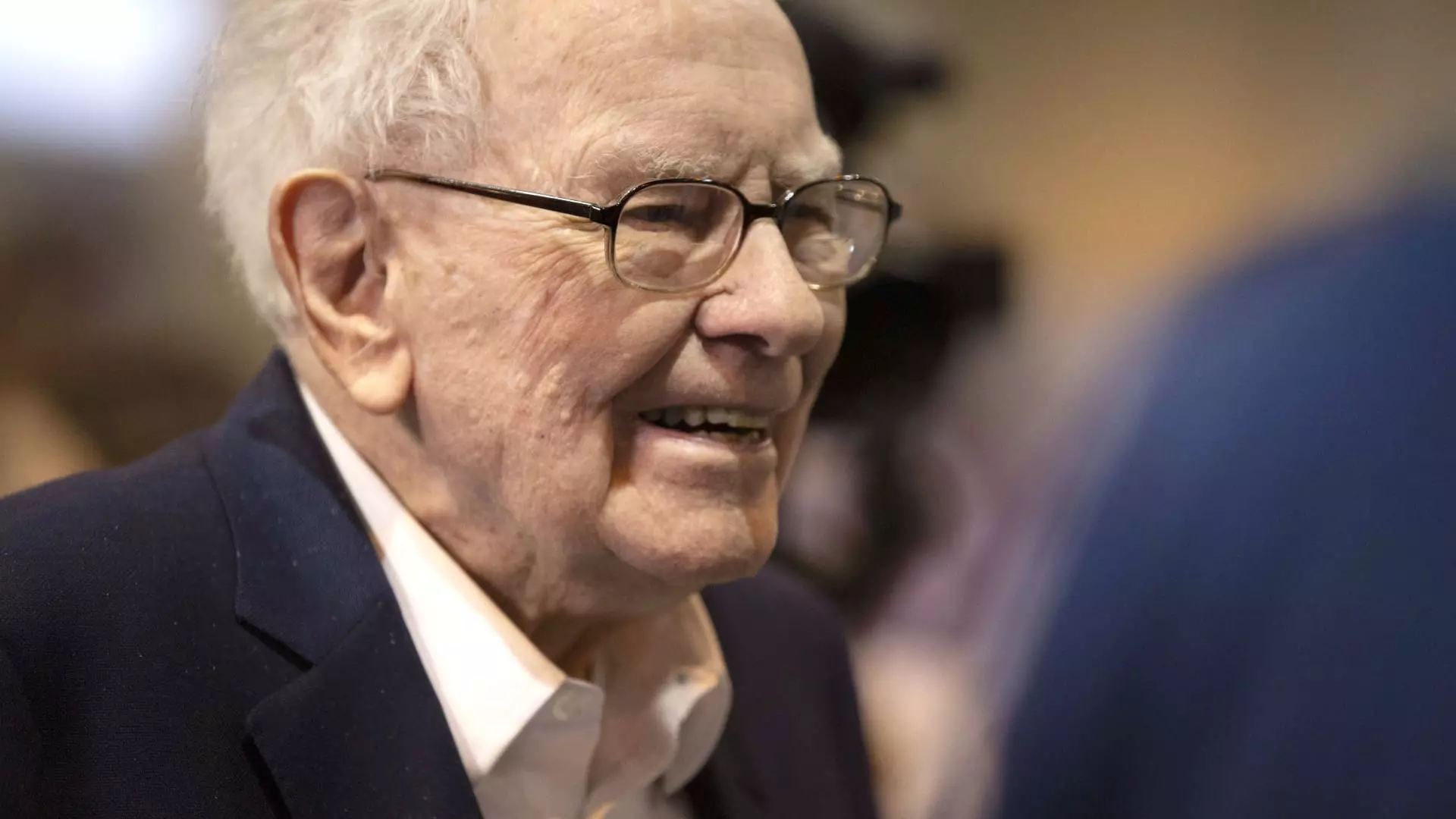Warren Buffett, the 94-year-old CEO of Berkshire Hathaway, is known for his astute investment choices, particularly in equities. However, his recent actions—selling substantial stocks while amassing a staggering cash reserve—have sparked intrigue and concern among investors and analysts alike. As the investment landscape continues to evolve, it becomes imperative to delve into the rationale behind Buffett’s seemingly defensive approach and what it signals for the future of his storied investment firm.
Buffett’s decision to build up Berkshire’s cash reserves to an unprecedented $334 billion came as a shock to many. Historically, Buffett has positioned himself as a champion of equity investment, advocating for long-term purchases of valuable companies. Yet, his recent quarterly reports show net sales of equities for the ninth consecutive quarter, totaling over $134 billion in stock sales throughout 2024. This measure not only questions his typical bullish investment strategy but also raises eyebrows about his outlook on market conditions.
In his most recent annual letter, Buffett reassured shareholders that this cash hoarding does not reflect a long-term departure from equities. He emphasized that a “substantial majority” of Berkshire’s capital would continue to be invested in good businesses, primarily in American equities. This statement suggests that Buffett still harbors confidence in stock investments, despite the apparent caution reflected in his recent sales.
Market Conditions and a Conservative Mindset
Buffett’s reluctance to invest heavily during a bull market—where the S&P 500 has gained over 20% for two consecutive years—has come under scrutiny. While many investors capitalize on favorable conditions, Buffett’s patience may stem from a belief that current valuations are unsustainable. His frustration with a “very expensive” market has led him to adopt a more defensive posture, likely signifying a desire to wait for more attractive investment opportunities.
Observing market trends, Buffett has pointed out increasing volatility driven by rapid policy changes and concerns around the macroeconomic landscape. His candid acknowledgment of a less-than-compelling array of investment options reflects a cautious appraisal of both market dynamics and the future trajectory of economic growth. Interestingly, he has highlighted that such periods require discerning investment choices—where oftentimes, one finds themselves “knee-deep in opportunities” infrequently.
Berkshire’s Leadership Transition: Preparing for the Future
Another dimension to Buffett’s caution may involve his efforts to groom his designated successor, Greg Abel. By consolidating capital and reducing exposure to larger positions, Buffett may be strategically positioning Berkshire Hathaway to ensure a smooth leadership transition. Abel, who has been compared to the late Charlie Munger, is seen as a capable decision-maker in matters of equity investment. Buffett’s endorsement of Abel in his annual letter suggests confidence in the next generation of leadership, reinforcing the transition approach that may require a more disciplined investment strategy.
Abel’s role in Berkshire’s investing decisions could mark a significant shift in strategy if he chooses to deploy capital differently from Buffett. As Buffett prepares for retirement, his focus on maintaining a strong financial position may also reflect a desire to create a stable foundation for Abel as he steps into greater responsibility.
Despite current cash levels and a penchant for caution, Buffett remains steadfast in his belief in the long-term value of equity investments. In particular, his ongoing commitment to the Japanese trading houses he began investing in nearly six years ago indicates his willingness to deploy capital in foreign markets when opportunities arise. This reflects Buffett’s adaptable investment approach—balancing traditional U.S. equities with strategic international positions.
Buffett’s assertion that Berkshire will always favor ownership in productive businesses over cash-equivalent assets demonstrates an enduring trust in the profitability of equities. The cash position thus serves as a tool, a war chest, rather than a definitive signal of a bearish outlook.
Warren Buffett’s current stance and Berkshire Hathaway’s strategic maneuvering seem contradictory at first glance; however, they embody a calculated balance between prudence and opportunity. Buffett’s substantial cash reserves speak to his understanding of market cycles and his expectation of value prospects that may present themselves in the future. As investors navigate these complexities, Buffett’s reflections serve as a reminder of the importance of patience and discernment in the investment journey, especially in tumultuous market conditions.
In a time when many rush to invest, Buffett’s defensive strategy may ultimately reaffirm the wisdom of seasoned investing: an emphasis on long-term value and a prepared mindset in the face of uncertainty. The future holds numerous paths for Berkshire Hathaway, but with Buffett at the helm—albeit with a carefully planned successor—the firm remains prepared for whatever unfolds.

